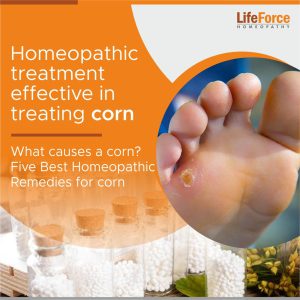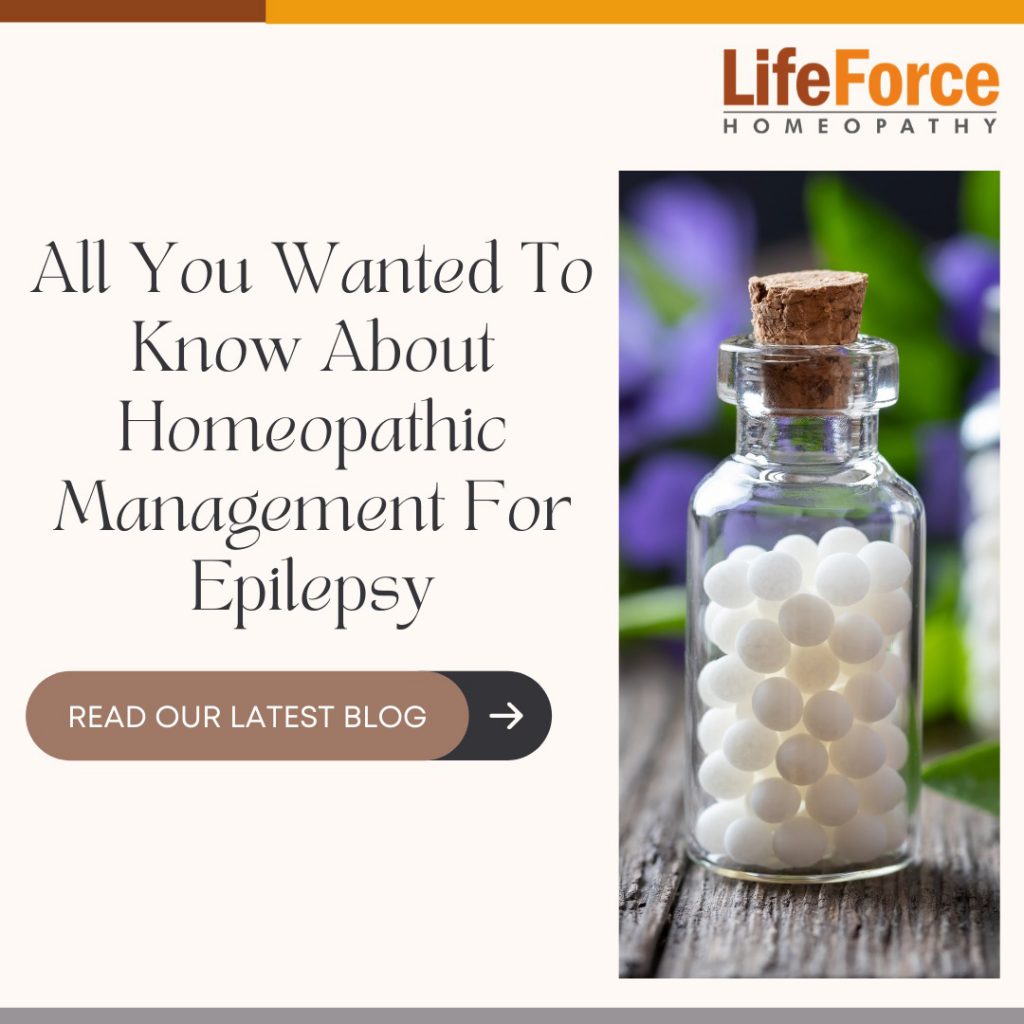 Sometimes when our body tries to protect itself from some injury or pain, it creates a defence, that is troublesome to itself.
Sometimes when our body tries to protect itself from some injury or pain, it creates a defence, that is troublesome to itself.
When excessive pressure or friction is applied on a particular part of skin, the superficial tissues try to protect the internal tissues from any injury. The superficial tissues become hard and rough so as to form a protective layer. However, this protective layer can itself become a cause of trouble when a pointed hard structure forms in the core. This pointed structure presses over the internal surface when one walks and causes pain. This is nothing but corn.
Corns arise from hyperkeratosis, a normal physiological response to excessive pressure or friction on the skin. They are most common on the hands and feet but appear localized to the area that bears repeated pressure or friction. Corn on soles of the feet can be quite painful. They also hinder mobility. One is often forced to walk in a crooked manner to avoid putting pressure on the corn.
Conditions which leads to repeated pressure and friction on the skin of palms and soles:
- Tight fitting or ill-fitting shoes.
- High-heeled shoes.
- Cramped footwear, use of hard footwear.
- Using shoes without socks.
- Dancing, walking or standing bare feet on a hard surface for long time.
- People with hammertoes – toes that are bent downwards, typically as a result of pressure from footwear
- Bunion – forms when big toe pushes against next toe, forcing the joint of big toe to get bigger and stick out. Skin is red and sore at this site. It is formed on the joint at the base of the big toe.
- Abnormal gait due to some other disease/fracture/deformity
- Occupations like hair-dressers, carpentry, boxing, cherry pitting, dancers who perform spins on their backs, jewellery making, musicians, etc. increase the occurrence of callosities on parts exposed to repeated frictions and pressures.
Corns may be acutely painful because of the pressure of the central keratin plug on underlying nerves in the papillary (second layer of skin) layer. Callosities which are soft or overlying bony surfaces can occasionally become infected due to minor tears in the thin overlying skin.
What are the treatment options?
Any treatment measure opted for must treat not only the corn or callus but also provide relief from recurrence.
- Pain relief: It can be obtained by relieving the tension within.
- Regular scrubbing with a pumice stone after soaking the feet or callus in warm water can prevent a recurrence, especially in painless callosities.
- Uses of proper footwear which distributes weight evenly can prevent the recurrence of callosities.
Too much to read? Ask questions about your ailment directly to Dr Shah. Click here.
Can homeopathy Help?
Homeopathic medicines can relieve the pain and stop the recurrence of callosities and corn as well. Painful callosities that cannot be scrubbed by pumice stones respond well to homeopathic medications taken internally.
There are many homeopathic remedies that are effective in treating corn, but today I will be discussing the commonly used five top-rated homeopathic medicines.
Yes, homeopathic treatment for corn can be taken to prevent recurrent cropping up of corn or painful corn. Along with corn treatment, homeopathy medicines can also be given for callosities treatment.
1) Antim Crud:
Antim crud is very effective in treating hard, horny and sensitive corns and callosities which are extremely painful. There is intense pain in the soles of the feet and it makes walking difficult. The slightest pressure will produce a callosity, or a sore place. There is an unusual tendency of thickening of the skin on the soles of the feet. The skin may start to chap, thicken, and become rough and cracked. There is a callous formation under the nail of the great toe. It is effective for warts to grow on the hands. There is an associated complaint of indigestion with a lot of food allergies. The person feels hungry all the time with a thick white coating on the tongue. Antim crud patients show a tendency to grow fat. Antimonium crudum is best homeopathy medicine for foot corn,which are areas of thickened skin that develop from repeated pressure or friction, typically on the tops and sides of toes or on the sole of the foot.If the corns are accompanied by a burning sensation, Antimonium crudum may be beneficial. This remedy is often chosen when there is a burning and sticking pain in the corns.If the skin around the corns appears moist or sweaty, Antimonium crudum may be considered.Some individuals may find that their corns worsen during wet weather conditions, and Antimonium crudum is known to be particularly effective in such cases.
2) Thuja:
Thuja is a deep-acting medicine. Thuja is indicated in very fleshy persons with a dark complexion, black hair and unhealthy skin. Thuja’s personality has a tendency for overgrowth of tissues and hyperkeratosis. People with a recurrent tendency of corns respond well to Thuja. There is general aggravation from damp weather. Perspiration is oily and sweet smelling, or sometimes offensive. Thuja has the singular property of softening hard tissues. Thuja is often indicated for soft corns, which are corns that develop between the toes due to friction and moisture. If the corns are accompanied by the presence of warts, Thuja may be recommended. Thuja is well-known for its affinity for treating warts, and if corns are associated with warts, Thuja could be considered.When corns are painful and sensitive to touch, Thuja may provide relief. It is particularly helpful for corns that are tender, sore, and painful. If the corns tend to bleed easily, Thuja may be indicated. Thuja is often chosen for corns with a tendency to bleed or ooze. If there is a foul odor associated with the corns, Thuja may be beneficial. Thuja is known for its affinity for treating conditions with offensive odors. Corns that worsen with pressure or touch may respond well to Thuja. Individuals experiencing aggravation of corns from pressure or touch may find relief with Thuja.
3) Nitric acid:
Nitric acid is indicated for thick, hard corns on feet with severe pain. This medicine is specific when there are hard corns with cracks. These are very painful and bleed on touch or movement. Nitric Acid is indicated in patients who have a tendency of Hyperkeratosis, where the adjacent skin has a golden-yellow characteristic hence it has been used for the removal of corns, warts, tumors, ulcers, and Keloids. It is indicated in patients who are greatly broken by long-suffering, pain and sickness. Suited to patients who catch cold easily. This remedy is especially useful for corns that tend to bleed easily, either spontaneously or upon pressure. Individuals experiencing a sensation as if a splinter or thorn is embedded in the corns may find relief with Nitric acid. Corns that worsen with pressure, such as when wearing tight shoes or walking, are often responsive to Nitric acid. If the corns emit a sour or offensive odor, Nitric acid may be indicated.
4) Ferrum-Picric:
Acts best in dark-haired patients, plethoric, with sensitive livers.
One of the best homeopathic remedies for corns with yellow discoloration in surrounding area. It is indicated when corns have resulted from exertion or too much walking. Corns are painful on walking especially ones on right toe. Ferrum picricum may be indicated for corns accompanied by a burning sensation, particularly when the burning pain is intense or shooting in nature.If the corns appear red, inflamed, or swollen, Ferrum picricum may be considered as a potential remedy.Individuals who experience worsening of corns in hot weather or due to exposure to heat may find relief with Ferrum picricum.In cases where corns have developed into open ulcers or there is a tendency for ulceration, this may be helpful. Ferrum picricum may be indicated for corns associated with neuralgic or shooting pains, especially if the pain extends beyond the affected area.If there is a general sense of fatigue or weakness accompanying the corns, Ferrum picricum might be considered as a potential remedy.Corns that are extremely sensitive to pressure, causing discomfort even with mild pressure, may respond to Ferrum picricum.
5) Graphites:
It is one of the carbon remedies. There is a tendency of thickenings of the skin. Patients have rough, hard, dry and unhealthy skin. Their feet sweat profusely and moderate walking causes soreness between the toes. Finally the sides and roots of the finger and toe nails become sore and are exceedingly painful. There are cracks in the heels and in between toes, with burning and stinging pain. There is tendency of ingrowing toe nails. Graphites patient has tendency for skin complaints like eczema, inpetigo, fissures and cracks. Person is sensitive to cold. Suited to females in there menopausal complaints. Individuals with corns that heal slowly or have a tendency to recur despite treatment may benefit from Graphites. It is indicated when there is a sluggish healing process.n cases where the skin around the corns is moist, eczematous, or oozing, Graphites may be indicated. It is particularly useful for corns in individuals with moist, unhealthy skin.
Read more about Corns Callosities on our website. For more information about Corns Callosities read case studies here.
Get in touch with us to know how Dr. Rajesh Shah’s research based homeopathy treatment at Life Force can help you. You can give us a call at +91-22-66888888 or drop in an email at info@lifeforce.in or contact us here.
-Dr. Aparna Hingmire Associate Doctor to Dr Rajesh Shah, Team LifeForce.





My son who is 16 years old have painless corn
in his two legs how do remove it pls say the guideline